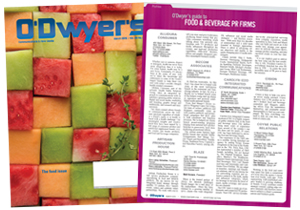 While global life expectancy continues to improve, dietary factors are the number-one cause of non-communicable diseases and premature death in all parts of the world except for Oceania and sub-Saharan Africa.
While global life expectancy continues to improve, dietary factors are the number-one cause of non-communicable diseases and premature death in all parts of the world except for Oceania and sub-Saharan Africa.
Yet, we’re also presently living through a grand transformation, as civilization consciously awakens to the realization that food is more than self-serving sustenance; it’s a connection that binds humanity together with nature and the spirit that emerges in the harmonic balance of both. No other mammals are wrestling with the trade-offs involved in converting sunlight to energy to tasty morsels for pleasure, for nourishment, or for living. The cheetah doesn’t care about affordability, accessibility, water usage, carbon footprints, fair trade, food safety, antibiotics, genetically modified organisms, artificial colors or sweeteners, ambient air quality, labor, animal welfare, or frankly, family members when it brings down the gazelle. The cheetah only knows survival. For humans, we have, thankfully, emerged above this level of existence and indeed find that it’s lonely at the top of the food chain.
|
|
Food awareness on the rise
The U.S. is beginning to catch up with other parts of the world that have been questioning the authenticity of our food, the way it’s produced, the people and technology that produce it, the way we eat it, the hidden consequences of producing it, and the alternatives that may challenge existing economic structures. In November 2014, Mark Bittman, an American food journalist and columnist for The New York Times, and others called for a national food policy to reform the food system in the United States.
In January 2015, the Institute of Medicine published a report entitled, “A Framework for Assessing the Effects of the Food System,” a thoughtful systems-based approach for evaluating the health, environmental, social and economic aspects of the food system. The report found, in part, that creating policies to change the food system require a lot of analysis and evaluations because of the “trade-offs embedded in current agricultural and food system practices.” In short, the food system is extremely complex and changing it to be better for humans, for the planet and for humanity will be challenging. It is imperative we understand that if we are going to change the food system, that we do so thoughtfully with an eye towards minimizing unintended consequences and providing for all — not just the food police or the food elites.
The evolving role of sustainability
The 2015 Dietary Guidelines Advisory Committee (DGAC) released its report in February, and for the first time considered sustainability as part of advising the federal government on what to recommend to consumers for a healthy diet. The DGAC report and recommendations, especially its policy recommendations, met immediately with a chorus of objections and strong criticisms. In fact, in an unprecedented move, the former members of the DGAC (its charter expired on February 19, 2015) convened at Harvard University to explain and defend its approach and recommendations.
The biggest hurdle in addressing some of these issues is that humans didn’t consciously create a food system to meet our newly awakened expectations. Traditionally, we have thought about the components of the food system in silos — individual issues around nutrition, safety, quality, affordability, access, and use. For example, food and nutrition scientists rarely communicated with each other, let alone with experts in culinary arts, energetics or environmental sciences. Even within companies, disciplines were organizationally divided and integration rare.
Today, however, we are evolving our understanding of the impact our food system has on people and the planet. We’ve begun to understand that our food system is extraordinarily complex and have started to think about conducting a multi-factorial assessment of our food system.
Is it possible to measure and evaluate multiple trade-offs in food and food production, such as human health effects, sustainability, and affordability? What food system should we design to optimize the multiple values we are placing on food? While organizations around the globe are working to answer these types of questions, we know that consumers, especially Millennials with young children, are demanding more from their food and the people and organizations that produce it for them. In short, they want to know the whole story.
A post-science foundation of food rules
Understanding these complex challenges and charting the future will require skilled individuals to help explain, educate, engage and entertain the population. It will require working together throughout all steps of the food chain, from appreciating farmers and production practices to recognizing the challenges of bringing affordable, nutritious food to the table to feed a growing population globally and help everyone achieve optimal health.
It is clear that we are moving from a strictly “science-based” foundation of the rules of food to a “principles-based” foundation. Yes, science will continue to be a core element, but it may not be the only element as civilization wrestles with the values assigned to different variables in a complex equation of multiple options and choices.
The future is ours to envision, redesign, reconstruct and improve, but change won’t come overnight — it will take courage, leadership, patience and perseverance. While it may not be easy at the top of the food chain, humans need to try to change because it is the responsible thing to do. In the words of Lyle Lovett, “But what would you be if you didn’t even try. You have to try. So after a lot of thought. I’d like to reconsider. Please, if it’s not too late. Make it a cheeseburger.”
The stories of our food are becoming more vivid, more vibrant and more vociferous, and storytellers around the globe are helping to shape how we think about food — how we talk about it, how we visualize it, how we relate to it, and ultimately, how we will value it in the future.
* * *
Bill Layden is Partner and Co-Founder of FoodMinds, LLC.



 What the biggest meal of the day can teach us about serving up effective nutrition communications campaigns.
What the biggest meal of the day can teach us about serving up effective nutrition communications campaigns. Tips to refine and amplify your CPG brand strategy to win in 2024 and beyond.
Tips to refine and amplify your CPG brand strategy to win in 2024 and beyond. Strategic communications strategies for success in the growing “food is medicine” movement.
Strategic communications strategies for success in the growing “food is medicine” movement. How brands can authentically communicate sustainability issues and create a brand experience that’s compatible with consumers’ values.
How brands can authentically communicate sustainability issues and create a brand experience that’s compatible with consumers’ values. Communicating the effects that climate change and a growing world population have on our food system—and why change is needed.
Communicating the effects that climate change and a growing world population have on our food system—and why change is needed.


 Have a comment? Send it to
Have a comment? Send it to 
No comments have been submitted for this story yet.